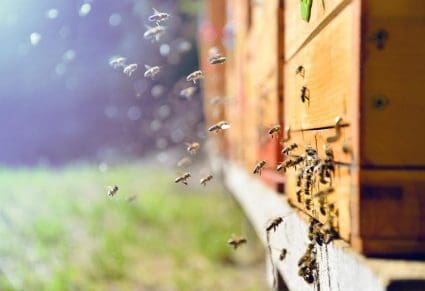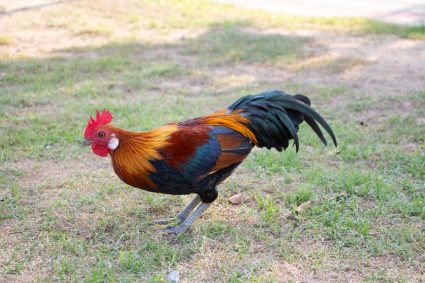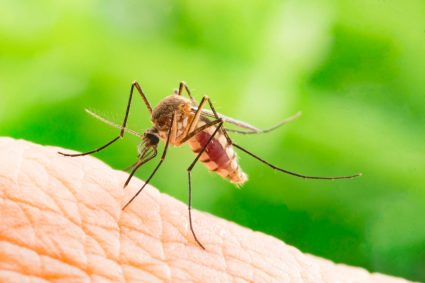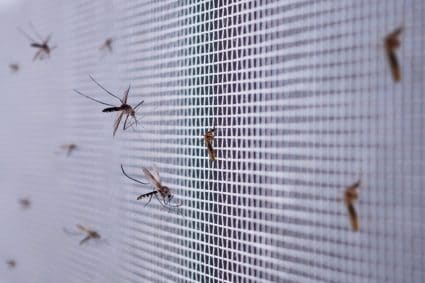
Keeping your chickens safe from possums can be a challenging task, but it’s not impossible. With the right strategies and preventive measures, you can effectively keep these nocturnal creatures away from your flock. In this comprehensive guide, we’ll explore various methods to deter possums, signs of possum infiltration, and how to create a secure environment for your chickens without harming the possums or the environment.
To keep possums away from your chickens, use an electrified fence or motion-activated sprinklers to deter them. Sprinkle crushed hot peppers around your coop or add them to your chicken feed, and consider using predatory urine or strong-smelling herbs as additional deterrents. Secure your coop properly, install motion-activated lights, and keep the area clean. For long-term prevention, remove food sources, secure trash and compost, eliminate hiding spots, install barriers, and use repellents.
Understanding Possums
Possums are omnivorous creatures, attracted to various food sources including chicken feed, eggs, and even the chickens themselves. They may also be drawn to pet food, windfalls from fruit trees, and rubbish bins in the vicinity of the coop. Possums are nocturnal predators, meaning they mainly attack during nighttime.
Signs of Possum Threat
Recognizing possum threats early can help you take necessary preventive measures. Some telltale signs include: – Wound marks on the chickens – Possum poop which generally looks like dog poop – Ransacked trash bins and feed sacks – Empty egg shells on the ground – Footprints – Partially eaten chickens
Natural Ways to Repel Possums
There are various natural ways to deter possums from your chicken coop. Here are some of them:
- Use an electrified fence: This will give the possum a shock if it tries to climb over the fence, deterring it from coming back.
- Install motion-activated sprinklers: These will startle the possum and keep it away from the coop.
- Hot peppers: Sprinkle crushed peppers around your coop or add them to your chicken feed. Capsaicin, the compound that makes peppers hot, is effective at deterring possums.
- Predatory urine: Make possums think there’s a predator in the area by putting a little bit of bobcat or coyote urine in your chicken coop. Be sure to wear gloves when handling it, as it can be harmful to humans.
- Strong-smelling herbs: Sage, rosemary, or oregano may deter possums, especially when mixed with spicy chili pepper. Blend to a paste and spread around affected plants.
- Secure your coop: Ensure your chicken coop is securely fastened and reinforced to prevent possums from entering.
- Motion-activated lights: Install motion-activated lights in your yard or around your coop to deter nocturnal predators like possums.
- Radio: Some people leave a radio playing all day and night near the coop, as the sounds will deter possums from entering.
- Christmas lights: Hang Christmas lights around the coop and run, as the light will deter many predators, not just possums.
- Keep the area clean: Remove any fallen fruits, seeds, or pet food from the ground to make the area less attractive to possums.
These methods are not only effective but also safe and humane, ensuring you protect your chickens without causing harm to the possums or the environment.
Long-Term Prevention Measures
To keep possums away in the long run, consider establishing these preventive measures: – Remove food sources: Pick up fallen fruit from trees or shrubs, remove pet food dishes left outside, and modify bird feeders to prevent food from falling to the ground. – Secure trash and compost: Cover trash and garbage bins with lockable lids and secure compost piles in containers with locking lids to prevent possums from gaining access. – Eliminate hiding spots: Remove cover and brush piles, and plug burrows to reduce the frequency of visits by possums. – Install barriers: Install sunken perimeter fences around crawl spaces, cover structure openings with hardware cloth, and use electric fences or porcupine wire to prevent climbing. – Use repellents: Although no repellents are specifically registered for possums, some people have found success using rodent repellent sprays, peppermint oil, ammonia, and cayenne pepper.
By taking these steps, you can create a secure and possum-free environment for your chickens, ensuring their safety and well-being. Remember, prevention is key, and maintaining a clean and secure environment for your chickens will help keep possums and other predators at bay.
With these strategies in place, you can rest assured that your chickens are safe from possums. Happy farming!
Frequently Asked Questions
What time of the day are possums most active?
Possums are primarily nocturnal creatures, meaning they are most active during the night. They tend to hunt and forage for food in the darkness.
Are possums dangerous to humans?
Generally, possums are not dangerous to humans. They are typically shy and avoid human contact. However, like any wild animal, they may bite if cornered or threatened. Also, they can carry diseases like leptospirosis, tuberculosis, and tularemia, which can be harmful to humans.
Can possums climb fences?
Yes, possums are excellent climbers. They can easily scale wooden or wire fences. That’s why it’s recommended to use electrified fences or fences with a smooth surface that possums can’t climb.
Will a possum kill chickens?
Yes, possums can kill chickens, particularly young or small ones. They are also known to eat eggs. However, possums are opportunistic feeders and will typically go for easy food sources like chicken feed or scraps before attacking a chicken.
Is it legal to kill possums?
The legality of killing possums varies by location. In some places, it is illegal to kill or trap possums without a permit. It’s always best to check local laws and regulations before taking any drastic measures. Remember, there are many humane ways to deter possums from your chicken coop, as discussed in this blog post.











